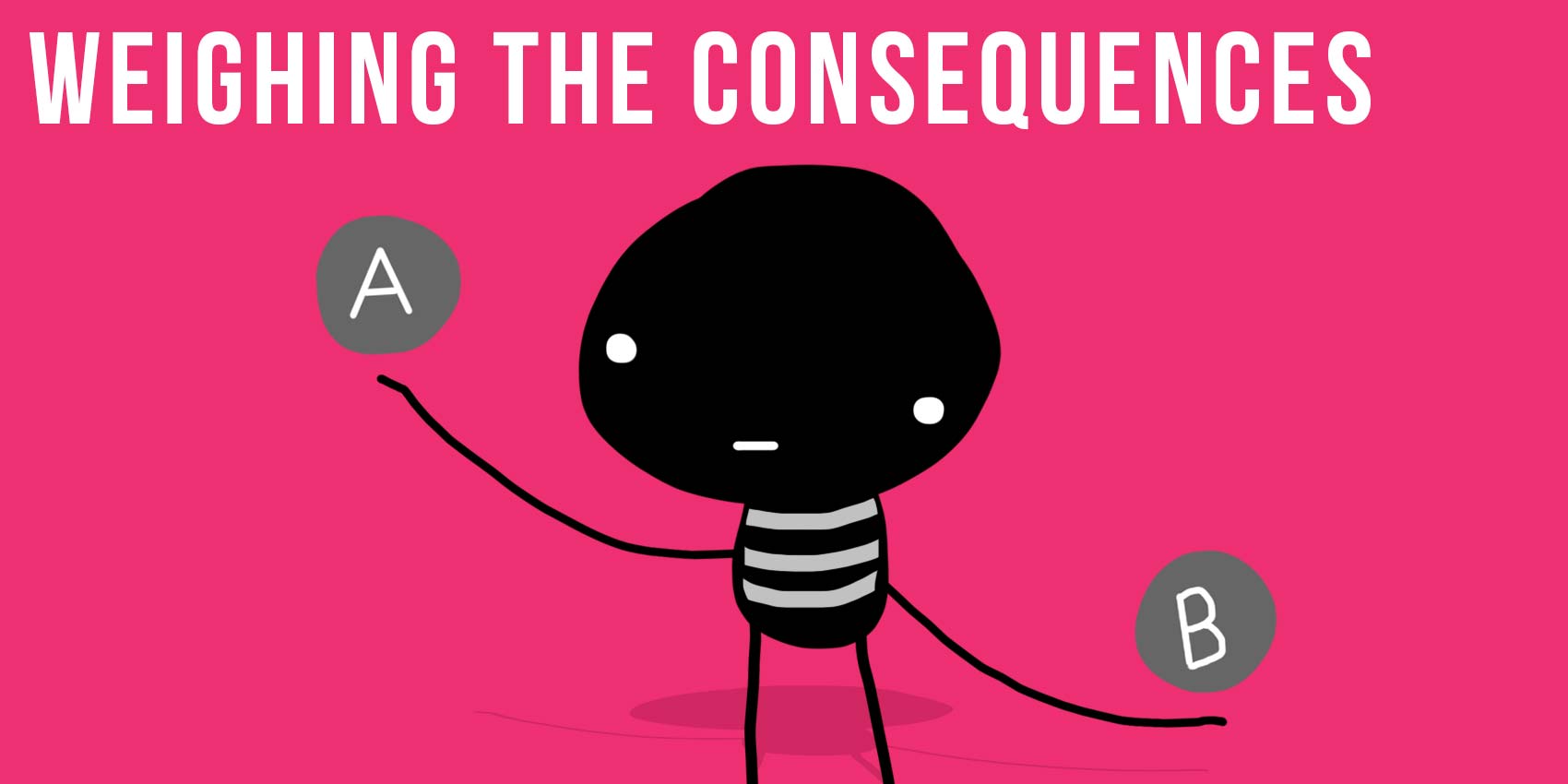15 Sep Weighing the consequences

Weighing the consequences means that you think about what will happen as a result of each choice you have and then choose based on which result you think is best. Here’s an example that will make this far less confusing;-).
Many decisions are a no-brainer: I am going to wear jeans and a t-shirt to school today. In this case, you didn’t need to weigh any consequences because you’ve worn this outfit to school a lot and it’s all good.
But when we add a new twist to it, the decision can get harder: Oh, but wait, I have to go to church after school to discuss the charity event planned for next month.
You will likely begin to weigh the consequences of wearing jeans and a t-shirt to church: Wearing a nicer outfit shows more respect and it’s something that I know my mom would like as well. I will wear a nicer shirt instead. And maybe not jeans.
By weighing the consequences you came to the conclusion that: Mom will be happy that I look nice when I go to church after school. If I wore an old shirt she would be upset with me, plus, I want to be respectfully dressed at church. Dressing well sends out a sign that I honor the place I am in. I will have avoided a potential argument. I feel good about my choice.
Let’s move to another example where the risks and rewards are spelled out. Remember, sometimes these thoughts are done without total awareness:
Should I invite the new kid to my party?
Potential Risks:
He might be socially awkward and could bring the party down.
My friends may not feel comfortable with someone new around.
He might be a real jerk and will cause trouble.
My friends may think he’s totally hot, and then he’ll get all the attention, not me.
I’ll feel guilty for not including him.
Rewards:
He might be a ton of fun and then will bring the party up.
My friends may find having a new person there exciting.
He may be a super nice guy.
My friends may think he’s totally hot and then they will love me for inviting him.
I’ll feel good about myself for including him.
You actually gain a sense of control over the situation, not to mention respect and responsibility, when you consider the consequences, the risks and the rewards, before you make your final decision. (Some people refer to the above list as a pros and cons list.)
People judge others based on the decisions we all make. It’s human nature. As much as we hate to be judgmental, we also have to be real: the way that you reveal who you are to world is through your actions and decisions. Your job is to make sure what you express to the world through your decisions is based upon who you want to be. Then if you do something and someone judges you poorly for it, you will be less likely to be impacted negatively by that judgment. You can think, Hey, that was the right decision for me. I am comfortable with it. I’m sorry they didn’t like it but different people like different things.
If you do falter (meaning, to stumble or make a mistake) and make a decision that does not reflect who you are, no need to panic. Keep your stress level low (this helps you make good decisions!) and read the next post: When you make a bad choice….

CHALLENGE: Think of a recent decision: List three risks involved and three rewards. What was your final decision? Did it reflect who you are? Any regrets?




Post Question:
Describe a risky decision you had to make. What factors influenced your choice?
Answer the post question here
What's being said